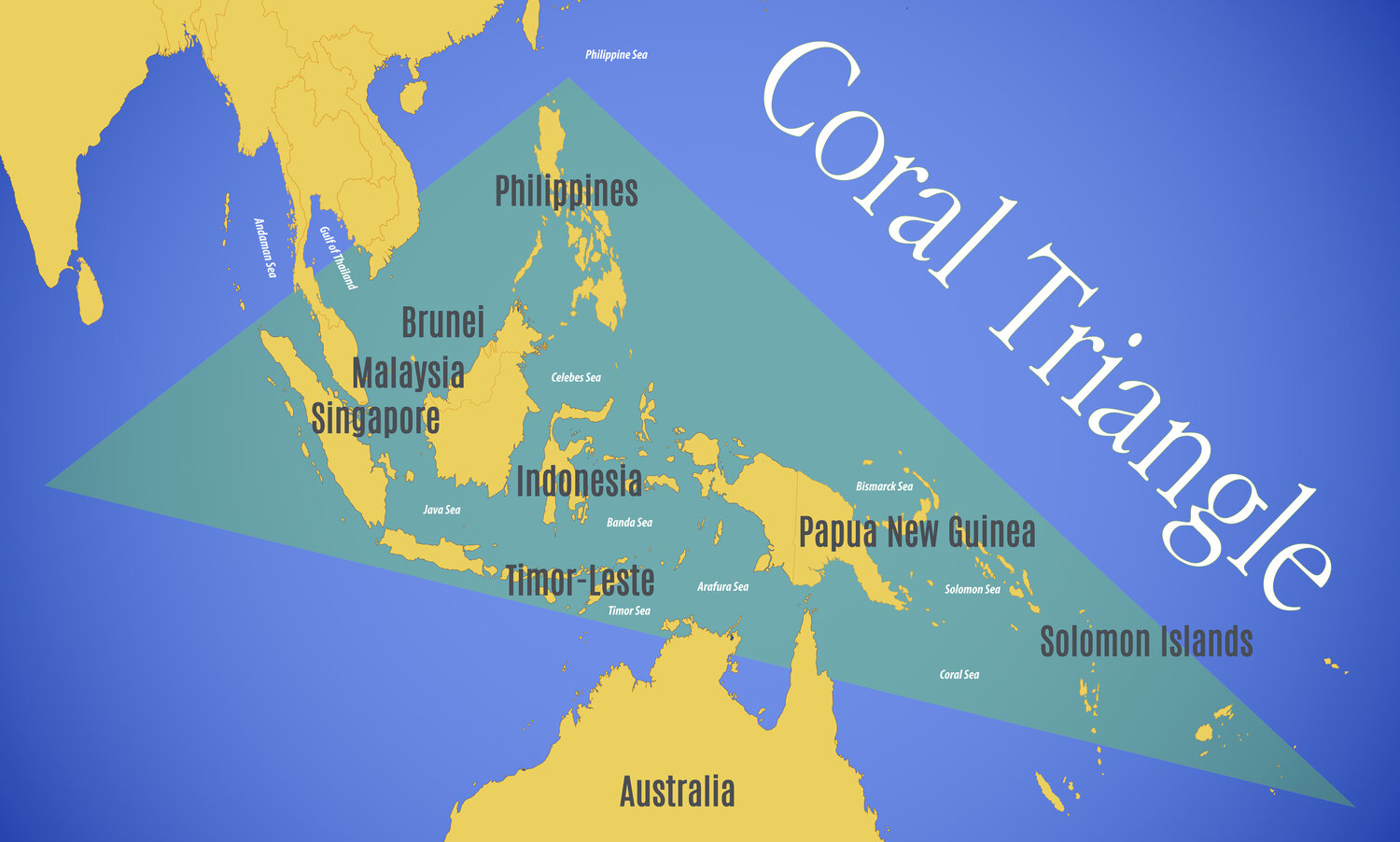Report was released at the 16th Conference of Parties (COP16) to the Convention on Biological Diversity (CBD).

About Coral Triangle:
- Located in tropical waters, It is one of the world’s most biodiverse marine regions.
- This unique ecosystem spans seven countries in Southeast Asia and Melanesia.(Refer Map)
Significance of Coral Triangle:
- It hosts 76% of world’s coral species, over 2,000 coral fish species, and six of seven marine turtle species.
- It supports 120 million people who rely on it for food, and income, with its habitats critical for marine diversity, earning it nickname "the Amazon of the seas."
Threats being faced by Coral Triangle:
- Oil and Gas Exploration: Over 100 offshore oil and gas blocks are currently operating in Triangle.
- It threatens Triangle’s delicate ecosystems, including coral reefs, mangroves, and seagrasses
- Noise pollution: From shipping and exploration activities harms marine life. Eg: Man-made noises can alter animal behaviors by damaging hearing or masking animal sounds.
Recommendations by report:
- Enact a moratorium on oil and gas development in Coral Triangle, while phasing out existing fossil fuel operations.
- Experts recommend Coral Triangle be classified as a Particularly Sensitive Sea Area to provide it with special protection from harmful maritime activities.







